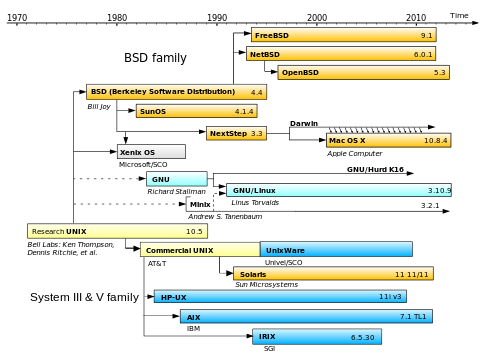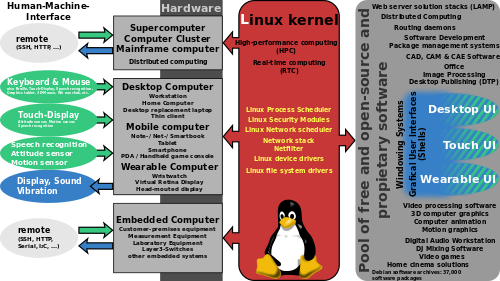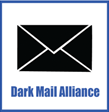11.07.13
Posted in GNOME, GNU/Linux, KDE at 6:27 am by Dr. Roy Schestowitz

Summary: Why in the world of GNU/Linux and UNIX/BSD, having more diversity is a good thing, not a thing to be feared and rejected
IT HAS long been recognised that cooperation combined with some competition leads to faster development and elimination of weaker concepts/implementations. We see a lot of this in the aviation and automobile industries. Many planes and cars use components from the same suppliers, but they still integrate uniquely in order to compete. Their improvements and integration work set them apart. The Linux Foundation, a unifying force in the world of Linux (kernel) development, says that “Competition Among Open Source Projects Delivers Better Technology Faster” [1]. Remember there even within Linux (and UNIX) there is a lot of competition, e.g. between file systems. There are pros and cons to each candidate and weaker ones cease to be developed.
What people call “Linux” is much more than a kernel; in a practical sense they often refer to Linux/X/GNU/KDE/Mozilla or something along those lines. The abbreviation “Linux” for what would better be described as the Free/libre operating system (not necessarily just GPL-licensed and not necessarily desktops) is so deeply rooted in society that it would be virtually impossible to change now, but let’s look at the desktop layer for a moment, taking into account recent news.
“It is disheartening to see a lot of anger directed at those who conceptualise and then implement their own alternatives which they deem technically better.”GVFS, which causes me much trouble at work, has a new release available for testing [2] and the same goes for GNOME Notes [3]. Cinnamon [4] and Wayland [5] help show that Shell and X are no longer the only game in GNOME town, demonstrating diversity in other layers of the stack too (GNOME does not necessarily run on GNU/Linux, either). GNOME is probably the most widely used Free/livre desktop environment, but over time it becomes easy to see that it branches off in many directions.
When it comes to KDE, which has a lot of power [6] and is actively developed by a very large group [7,8], the same is true. KDE can run on almost any operating system, with varying degrees of compatibility and integration. It’s not just for desktops, either. That’s why KDE was pretty much renamed/rebranded a “Software Compilation” a few years ago. My wife uses KDE because KWin makes it easier to use and it is more visually pleasing. But it’s not for everyone.
Let’s not forget others players like Xfce [9] (usually considered third in popularity) and of course the plethora of tools which make the command line so powerful [10,11,12,13]. On servers where performance comes first, command-line tools are a must.
When the “Free Desktop” expands to other form factors, supports more desktop/interface environments, initialisation systems, file systems, graphical servers etc. we should expect it to evolve faster, not more slowly. The development community grows when diversity increases. It is disheartening to see a lot of anger directed at those who conceptualise and then implement their own alternatives which they deem technically better. It’s not the spirit of GNU to just slag off those who come up with new solutions, seeking to replace — based on merit — what’s currently popular among users. It is okay to criticise those who try to leverage software patents to ban or tax their competitors (like Novell did with Microsoft), but to berate companies for doing GNU/Linux their own way (under copyleft) is worse than a waste of time; it’s very counter-productive and it distracts from the real threats. █
Related/contextual items from the news:
-
Today we’re pleased to announce that The Linux Foundation will host the Open Virtualization Alliance (OVA), the organization dedicated to education and advocacy for KVM. KVM is growing in popularity among businesses and open source communities like OpenStack with a 50 percent increase in deployments this year, according to IDC. We will work with OVA to extend education and advocacy that supports and helps advance the important work of this developer community.
-
The first development version towards the GVFS 1.20 application for the GNOME 3.12 desktop environment was announced a few days ago, introducing various fixes and improvements.
-
The first development release towards GNOME Notes 3.12, a nice and simple application designed to create, view, and edit notes on the GNOME 3.12 desktop environment, has been announced on October 27, 2013.
-
The Cinnamon Desktop project recently released version 2, a major overhaul of the desktop environment that’s best known as the default option for Linux Mint’s flagship release.
-
With the Fedora 20 beta coming up I decided to see where the latest Fedora 20 packages are now at for their support of Wayland and the GNOME Shell Wayland session. In particular, looking at whether the session is still buggy and how the XWayland performance is for Linux gaming.
-
-
-
-
I just read about the Whisker Menu for Xfce at OMG! Ubuntu and installed it on my system from the Fedora repositories.
While I’m happy with my panel on the left and the traditional Xfce Application Finder, I thought the Whisker Menu would be worth a try.
-
Laptops often have special keystroke combinations for certain functions or commands
-
The term lightweight is a label attached to computer software which is relatively simpler or faster than its counterparts. Feature bloat is endemic in software especially commercial software. Often, the easiest way to persuade users to upgrade to the latest version is to add new spangly features. This happens with open source software (to a lesser degree), and open source music software is not immune to feature bloat. Music players can often seem to be designed for everything except actually listening to music with tons of bloat that you do not actually need.
-
-
Permalink
 Send this to a friend
Send this to a friend
Posted in Hardware, Microsoft at 5:50 am by Dr. Roy Schestowitz
Another reason to boycott UEFI

Summary: More evidence of the evil nature of UEFI, which facilitates tying software to hardware, and even hard-drives (albeit indirectly)
Our contributor iophk has taken note of this interesting thread which helps demonstrate the demonic effects of UEFI, which is like the digital equivalent of GMO in food (which ought to be properly labelled and avoided).
“Here are some of the hoops one has to hop through to install on a Restricted Boot machine,” iophk wrote, noting: “I bet drive manufacturers are happy.” Well, definitely the environment would be upset. Here is the key part:
So simple solution, remove the HD that the laptop shipped with and throw it in a drawer to save. Put in a new 7200rpm drive and switch it over to legacy. Far better to spend the 100ish bucks on a HD then waste your time dealing with the UEFI crap.
Boycott UEFI. Send the UEFI Forum (which comes from an evil company) a strong message; they ought to know by now that letting our computers (motherboards even) be remotely controlled by criminal companies like Microsoft is simply not acceptable. It also potentially implicates the NSA. █
Permalink
 Send this to a friend
Send this to a friend
Posted in GNU/Linux, Microsoft, Vista 8, Windows at 5:37 am by Dr. Roy Schestowitz
GNU and Linux (which already dominates by its inclusion in the core of Android) are rising

Summary: GNU/Linux may become dominant on the desktop as early as next year, some pundits argue, citing the problems with Vista 8 and the end of Windows XP
Steven J. Vaughan-Nichols, a longtime critic of Microsoft, calls the bugfix release of Vista 8 “more Windows fail,” noting of course what we’ve stressed since last year. Microsoft made too radical a change to Windows, so due to retraining costs it might be worth for businesses to just make the migration to GNU/Linux, not ‘upgrade’ to Vista 8.x. To quote Vaughan-Nichols:
My assessment: Windows 8.1 doesn’t suck as much as Windows 8. If you felt, when using Windows 8, as if you were banging your head against a brick wall, Windows 8.1 might feel as if you’re banging it against a wooden wall. Much better, right? Of course, someday you might ask yourself why you need to bang your head against a wall at all.
Let’s start with Start. Yes, we’ve all heard that Microsoft is bringing the Start button back, responding to all those users shrieking about its disappearance. So that’s better, right? Not so much. All that the new Start button does is bring up the touchy-feely Metro — uh, I mean, Modern — no, wait, make that “Windows 8 Store apps” interface. Is it any wonder that Lenovo bundles the Pokki Start button and menu replacement software with its Windows 8.x machines?
About that interface name: Windows 8 Store apps. Really? Could it be any lamer? Tell me, is there any way Ballmer can be shoved out the door faster?
In the new article “Three signs you’re drinking the Microsoft Kool-Aid” some good points are being made, noting that a lot of people choose to use Windows (or tolerate it being preinstalled) for the wrong reasons. The problem, however, is that the article started with or focuses on the wrong battle — a battle of brands of proprietary software. It says “Mac users have long been criticized for drinking the proverbial Apple Kool-Aid, but as iOS and OS X market share continues climbing, and Microsoft continues hemorrhaging, now might be the time to ask whether you’re drinking the Microsoft Kool-Aid. Here are three sure signs you need to step back, take a deep breath, and re-examine marketplace realities.”
A much better article [1] notes that the “year of the Linux desktop” may be imminent because of the changes Microsoft makes to Windows. A couple of IDG articles [2,3] note that the end of support for XP can make a big difference and that “[f]or the Mac, like the PC, it’s all downhill from here” (“PC” as in Windows). █
Related/contextual items from the news:
-
The “year of the Linux desktop” has been prophesied by Linux supporters almost every year for the last decade. This was once a lofty goal in the Microsoft-dominated enterprise, but times are changing. Linux has grown into a formidable competitor in the smartphone and cloud computing markets, which has caught Microsoft off guard. More importantly, Google, IBM, Red Hat, Facebook, and Netflix have made huge investments into Linux innovations.
-
Should Linux Replace Windows XP?
Windows XP is headed for the scrap heap, should Linux be used to replace it on older computers? TechRepublic takes a look at this question, and comes away with a negative point of view.
-
Permalink
 Send this to a friend
Send this to a friend
Posted in Google, Microsoft, Patents at 5:23 am by Dr. Roy Schestowitz

Summary: The patent troll which Microsoft has created to attack Android/Linux is now doing the predictable and Microsoft (mis)uses legal instruments like DMCA as well
Microsoft is not a scapegoat. Microsoft is a criminal company thriving in bribes, sabotage, litigation, racketeering, etc. For anyone who thinks that Microsoft will die peacefully or has somehow become any more benign than before, there’s news to pay attention to. This post is just a quick summary of events which were mostly covered — fairly well in fact — by other sites.
Here is an accurate assessment of where Microsoft stands right now and what it is trying to do. As FOSS Force put it:
About a month ago we decided to speculate on where Microsoft would be five years down the road. Obviously, the company is in transition and is trying to reinvent itself fast. The traditional desktop market, where Windows dominates, isn’t going anywhere and reports of it’s demise are premature, but it is shrinking and becoming much less important, especially in consumer space.
Well, it oughtn’t neglect how Microsoft tried to reinvent itself as just a racketeering company, making money from other people’s work using patents. “Apple/Microsoft-backed Rockstar Consortium suing Samsung and Google over old Nortel patents Rockstar now owns,” says this article, noting that Nokia too has a role to play:
On the heels of the Apple/Microsoft-backed Rockstar Consortium suing Samsung and Google over old Nortel patents Rockstar now owns, Samsung is tying up patent negotiations on another front. Today Flinland’s Nokia announced that it has extended a patent license agreement with the Korean handset giant for another five years, and that the two had entered into binding arbitration to settle additional compensation related to this, expected to be concluded in 2015.
Microsoft staff that’s just “following orders” says that: “We will know that day has arrived when Microsoft quits threatening every open source project under the sun with patent litigation.”
Well, if he feels this way about Microsoft, then why does he work for Microsoft and help it infiltrate the FOSS community? As FOSS Force put it:
The legal papers were filed by Rockstar Consortium, a patent troll owned by Microsoft, Apple, BlackBerry, Ericsson, and Sony. They hold 6,000 plus patents purchased in an auction for $4.5 billion from bankrupt Canadian telecom Nortel. Google had been bidding against Rockstar for the same patents, but dropped out after placing a $4.4 billion bid that didn’t hold up. Not long afterwards, Google bought Motorola Mobility for $12.5 billion, in large part for its vast patent portfolio–just in case a patent war broke out.
Again, the patent wars have now gone nuclear.
Rockstar is suing Google and just about every manufacturer of Android phones. The suit against Google seems to be mainly against their search technology. The Android makers are accused of infringing on patents dealing with issues such as “Managing a Virtual Private Network” and “System and Method for Notifying a User of an Incoming Communication Event.” To determine infringement, Rockstar engaged in a lot of reverse engineering.
Like all good patent trolls, Rockstar is using everything it can find as a weapon–even Googles $4.4 billion dollar bid to purchase the patents that are now being used against it. Rockstar claims that to be proof that Google already knew it was in violation, paving the way for a finding of willful infringement–meaning damages can be multiplied by three.
Here is what Linux Insider said about it: “Another legal battle between tech titans is brewing. The winners of the Nortel patent bidding war — Microsoft, Apple, et al — have filed a batch of lawsuits against Google and several Android smartphone manufacturers, charging infringement of a number of those patents. Though a good deal of money may change hands, this will be “a road bump in the smartphone wars,” said IP attorney Peter Toren.”
A good take came from TechDirt:
Patent Troll Shell Company Owned By Microsoft And Apple Launches Massive Patent Attack On Android
About a year and a half ago, we wrote about “Rockstar Consortium,” a shell company set up by Apple and Microsoft (and a few other companies), in which they placed many of the patents they received when they outbid Google to get Nortel’s patents. We noted at the time that one of the reasons regulators let Apple, Microsoft, RIM and others team up to buy these patents without it being an antitrust concern was that they promised that all the patents would be able to be licensed on “reasonable terms.” Except… once they handed them off to Rockstar, that company’s CEO, John Veschi, noted that this promise “does not apply to us.”
Microsoft is misusing laws against Google not just when it comes to patents; here is another new example:
Gmail Stays Up as Google Rejects Microsoft DMCA Takedown Notice
While Google receives millions of DMCA notices for its search service every week, that’s not the only part of its system to be targeted by rightsholders. Working on behalf of entertainment companies, over the past year several anti-piracy companies. Microsoft included, have regularly identified and reported URLs used by Google’s Gmail service as infringing copyright. Fortunately, the system hasn’t come crashing down.
For those who say that Microsoft is just worth ignoring it should be made apparent that it’s not GNU/Linux picking on Microsoft; it’s Microsoft that’s constantly picking on GNU/Linux. Any dislike of Microsoft is very much defensive and for Microsoft to be loathed is a well-earned status. We wrote about Rockstar a long time and we foresaw the above action. It’s cartel with racketeering and Apple plays a role in it too, showing its growing proximity to Microsoft. █
Permalink
 Send this to a friend
Send this to a friend
11.03.13
Posted in Action at 3:53 pm by Dr. Roy Schestowitz
Keith B. Alexander still in the NSA…

Summary: CIA-friendly press explains to degree to which the NSA helps the CIA choose bombing targets (suspects and people in their vicinity)
A WEEK or so ago we said that Britain’s worst paper had published an article confirming that the NSA played a role in targeted assassinations using Linux-powered drones. Thousands of people (many innocent civilians) have already been killed in this way, with over a thousand killed by just one 'pilot'. One might say that the NSA is the agency behind these ‘death lists’. Right now, the CIA-friendly Washington Post (owned by strong CIA partner Jeff Bezos) helps confirm what Britain’s worst paper said [1]. The narrative used by the Washington Post is of course self-serving (it is corporate press which rejected important leaks from Bradley Manning), but it sure helps tie together the controversial assassinations and the NSA.
Many privacy advocates have been particularly concerned that young people are now acting as Trojan horses or informants on so-called ‘friends’ and family members (providing gossip and even in-house images with geo-tagging, tagged face recognition, etc.), but fortunately enough this malicious thing called ‘social’ networking (crowdsourced intelligence gathering) is losing popularity among young people [2,3,4]. Let’s hope this trend continues. Whatever makes the NSA weaker makes the majority of society better off. The NSA, as evidence helps show and strongly support time after time, is about protecting the minority who are in power. Rather than protect the public it offers protectionism to the richest 1% and their political agenda. █
Related/contextual items from the news:
-
It was an innocuous e-mail, one of millions sent every day by spouses with updates on the situation at home. But this one was of particular interest to the National Security Agency and contained clues that put the sender’s husband in the crosshairs of a CIA drone.
-
“We did see a decrease in daily users, specifically among younger teens,” Facebook acknowledged. Here’s why that matters.
-
Facebook shares soared 15% Wednesday on blowout quarterly results — but the stock lost steam after the company admitted young teens are losing interest in the site.
-
Facebook’s popularity might be on the decline among some teenagers, the company signaled Wednesday.
For younger teenagers, Facebook has seen a decline in the number of daily users, the company reported during its third-quarter earnings call. Overall, usage among U.S. teens was stable between the second and third quarters, but the decrease in daily usage for some was noted early in the prepared remarks of Facebook’s chief financial officer, David Ebersman.
Permalink
 Send this to a friend
Send this to a friend
Posted in Action at 3:28 pm by Dr. Roy Schestowitz

Summary: How Edward Snowden’s download (copying) of an untold number of unspecified documents (from Microsoft SharePoint) enables everyone in the NSA to leak more documents and attribute this to Snowden (who enjoys asylum)
HERE in Britain, Bonfire Night is already being celebrated by some people. Many let loose their fireworks during the weekend, just before the actual night which is when people work (it’s not a national holiday), so there are explosions outside as I write this. Bonfire Night is about Guy Fawkes, which became famous for the mask of Anonymous, the collective of online activists. Anonymity is a valuable tool for activists. If people can do particular actions without being held accountable for these actions, then that can be used for bad (trolling/cracking) but also for good (whistleblowing/retribution against power). Some — especially the rich and the powerful — try to use the bad cases in order to ban the latter. It helps them keep their power and it helps them keep secret their abuses (if any).
“In a sense, Snowden would be a perfect ‘mask’ for anonymous whistleblowers.”Earlier today, Asher Wolf and many other activists retweeted me saying “Perhaps #snowden is becoming the real-life Guy Fawkes, the anonymous persona through which anonymous leakers claim leaks to have come from” (source).
For context see [1,2] as it suggests that the NSA now has several unknown leakers, whose leaked documents probably get attributed to Snowden in order to protect their jobs. In a sense, Snowden would be a perfect ‘mask’ for anonymous whistleblowers. The NSA does not really know what documents Snowden downloaded to leak to the press (Microsoft SharePoint logging must be defunct), so anything which leaks from the NSA can just be assumed — even wrongly — to have come from Snowden. Suffice to say, it leaves the NSA even more vulnerable. There can be dozens of leakers still working for the NSA, but the NSA cannot know if that’s the case and thus it cannot find out who they are. Snowden gives them the perfect cover. Each NSA whistleblower can just say “I am Edward Snowden” and get away with it when it’s published, leading to another reforming scandal. Maybe one say privacy can be restored thanks to Snowden’s actions [3]. █
Related/contextual items from the news:
-
Jesselyn Radack is a civil liberties attorney with the Government Accountability Project who has been in contact with Edward Snowden. In an ABC News interview, she reported that other NSA insiders have been inspired by Snowden’s bravery and sacrifice and have come forward with further revelations about the organization’s excess, criminality and lawlessness. She says that the Obama administration’s war on whistleblowers has backfired, squandering the administration’s credibility with its own operatives and inspiring them to speak out.
-
But the legal threats and high-level condemnation haven’t kept others from coming forward with new information, Radack said.
“There definitely could be more revelations in addition to those that Snowden has revealed and that are continuing to come out,” she told ABC News.
-
The steady trickle of revelations of government snooping that continues to seep from the Edward Snowden documents is serving to keep attention riveted on how privacy in the digital age ought to be defined.
That’ most probably not to the liking of Google and Facebook. In January 2010, Facebook founder and CEO Mark Zuckerberg infamously declared that the expectation of privacy was no longer a social norm, and, in October 2010, then Google chairman Eric Schmidt said “Google policy is to get right up to the creepy line and not cross it.”
Permalink
 Send this to a friend
Send this to a friend
Posted in Action at 2:54 pm by Dr. Roy Schestowitz

Image credit: AP Photo/Eraldo Peres
Summary: The UK is cheapening terrorism by just equating it with investigative journalism that looks into abuses of international laws
Without independent media, we cannot enforce a law that's adhering to justice as an uninformed public becomes too weak to speak out against those in power (they can rewrite the law to legalise their injustices). Here in the UK we have a chilling war on journalism right now [1, 2, 3, 4, 5]. Threats are being sent to journalists by our ‘elected’ officials and hard-drives are being destroyed on demand for political reasons.
“Threats are being sent to journalists by our ‘elected’ officials and hard-drives are being destroyed on demand for political reasons.”An MI5 whistleblower, the ‘British Snowden’ as some might prefer to refer to her, speaks about the lack of spy oversight [1]. Basically, if you make it illegal to report about spies, then you make it impossible for the public to scrutinise those spies when they break ethical guidelines, violate the law, or put to shame the original contracts that legitimise their budget (taxpayers’ money). The BBC World Service, not a Russian media outlet for a change, gave this ‘British Snowden’ a platform (or a “propaganda platform” as the US State Department might call it).
The latest news from the Snowden saga is that David Miranda, the partner of Glenn Greenwald (Assange equivalent), has been harassed for political reasons [2,3]. Great move, Cameron et al.
A few months ago, after passing the passport control area in Manchester Airport I was hanging around for a bit near two offices used for interrogating people under the pretext of “terrorism”. The doors had a notice on them, alluding to this law which facilitated a vague process as means of “counter terrorism”. It’s a fairly new process. Terrorism as it is described in the media (synonymised these days with radical Islamisation) is not a new thing; what’s new are the laws and the retribution, e.g. drone strikes, long/indefinite detainment without charges, torture for false confessions to be derived, etc. In Britain we had issues with the IRA too, but the same type of actions by Irish militants/extremists did not facilitate harassment of journalists and their family members who are in transit in airports. For the term “terrorist” to be applicable at all, as per the definition of the word, physical violence must be involved. Trying to label leakers and/or their publishers “terrorists” is to merely cheapen the term and over time make it virtually meaningless, just like the term “pirates”. █
Related/contextual items from the news:
-
-
Security services in the United Kingdom have accused David Miranda, the husband of journalist Glenn Greenwald, of being “involved in espionage activity” when he traveled from Berlin to Heathrow Airport on his way back to Brazil, where he lives with Greenwald.
-
The detention of the partner of a former Guardian journalist has triggered fresh concerns after it emerged that a key reason cited by police for holding him under terrorism powers was the belief that he was promoting a “political or ideological cause”.
The revelation has alarmed leading human rights groups and a Tory MP, who said the justification appeared to be without foundation and threatened to have damaging consequences for investigative journalism.
David Miranda is the partner of Glenn Greenwald, the journalist who – often in collaboration with the Guardian – has broken many stories about the extent and scope of spying by the US National Security Agency. Miranda was stopped at Heathrow airport in August and held by the Metropolitan police for nine hours while on his way home to Brazil.
Miranda, it has been claimed, was carrying some 58,000 encrypted UK intelligence documents. He had spent a week in Berlin visiting a journalist, Laura Poitras, who has worked with Greenwald on many of his stories, which have been based on information leaked by the former NSA contractor Edward Snowden.
[...]
Greenwald was equally scathing, tweeting: “UK govt beats its mighty chest, now explicitly equates journalism with ‘terrorism’ and ‘espionage’.”
Permalink
 Send this to a friend
Send this to a friend
Posted in Free/Libre Software, FSF at 2:18 pm by Dr. Roy Schestowitz

Summary: The “DarkMail Alliance” is announced and other options emerge as freedom- and privacy-respecting means of electronic communication
WITH the exception of some projects like Ubuntu, Free software tends to respect users’ privacy and if it doesn’t, then those users can modify the software to remove privacy-violating code (as some Ubuntu derivatives typically do). The NSA scandal received some special coverage in LinuxCon Europe [1] because it is very relevant to GNU/Linux users. There were attempts to put back doors in Linux.
The founder of the FSFE, who moved on to Kolab some years ago, is now using Switzerland’s unique privacy policies to offer users privacy-respecting and freedom-respecting E-mail [2]. He is not alone. There are several companies, including one of the PGP founder (original developer), which now use the demand for privacy-respecting E-mail to create secure alternatives [3,4] (“DarkMail Alliance”). A month from now in Manchester we’ll also have a CryptoParty with the FSFE, helping people configure their machines for improved privacy. My wife and I will be there for help.
The bottom line is, in this age of Microsoft collusion with the NSA we have some very strong arguments with which to persuade people to embrace Free/libre software. It is about human dignity, not just the ability to modify source code, dodge abusive monopolies, and of course save money. My wife, for example, happily uses KDE and Android, knowing that GNU/Linux is now only technically superior to the alternatives but also more respectful towards her human rights. Techrights was recently designed with emphasis on privacy and the next few posts will deal with privacy alone. █
Related/contextual items from the news:
-
Today he is Chief Research Officer at F-Secure in Finland and a just-confirmed keynote speaker for LinuxCon/CloudOpen Europe taking place October 21-23, 2013 in Edinburgh. Hypponen will be talking about the biggest computer security story of the year, that of the NSA and PRISM, in a talk titled “Living in a Surveillance State.” He is also expected to talk about the role the Linux community can play in ensuring the security and privacy of the Internet and mobile devices.
-
-
Silent Circle CTO: “What we’re getting rid of is SMTP.”
-
Dark Mail will provide end-to-end encryption, including email metadata
-
Edward Snowden revelations of mass spying programmes such as PRISM and Tempora show that something needs to be done to protect our private online activities from the prying eyes of GCHQ and the NSA. There’s currently a great deal of interest surrounding these issues and as a result people are seeking to find tools which will help them protect and secure their email, instant messages and web browsing.
This can be done, to an extent, through the use of encryption technology, so on 7th December, we’ll be teaming up with Free Software Foundation Europe to organise a Cryptoparty in Manchester.
Permalink
 Send this to a friend
Send this to a friend
« Previous Page — « Previous entries « Previous Page · Next Page » Next entries » — Next Page »

























 Content is available under CC-BY-SA
Content is available under CC-BY-SA